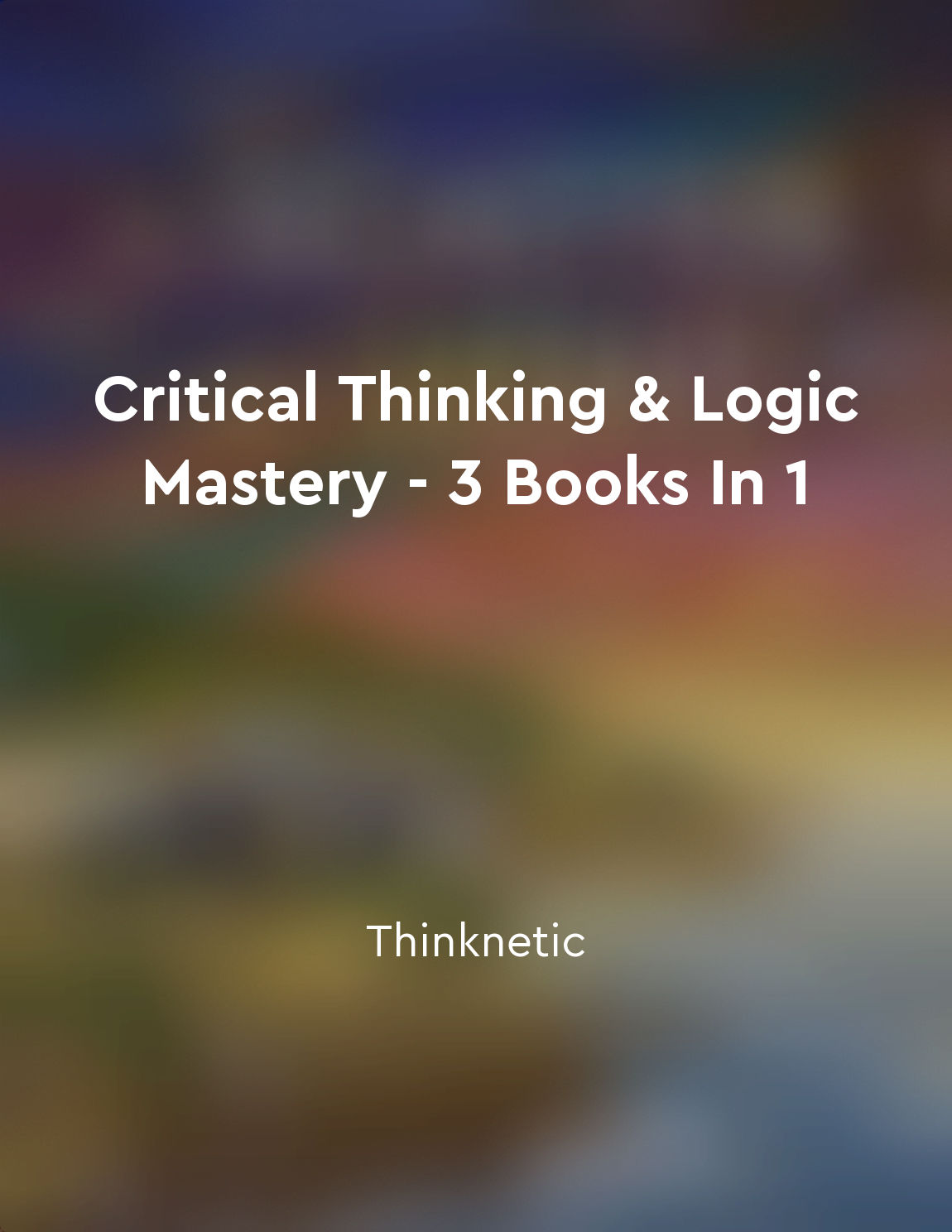Audio available in app
Deductive reasoning involves making specific conclusions from "summary" of Critical Thinking & Logic Mastery - 3 Books In 1 by Thinknetic
Deductive reasoning is a method of logical thinking that involves starting with a general statement and then drawing specific conclusions based on that statement. In deductive reasoning, the conclusions that are reached are necessarily true if the general statement is true. This type of reasoning follows a top-down approach, where one starts with a broad idea or theory and then moves down to specific instances or examples. When using deductive reasoning, one must first establish a premise or general statement that serves as the foundation for the argument. This premise is typically based on accepted principles, theories, or beliefs that are known to be true. From this premise, one can then apply logical reasoning to reach specific conclusions that are derived from the initial statement. The key to deductive reasoning is that it is based on sound logic and follows a systematic process of reasoning. By starting with a general statement and moving towards specific conclusions, one can ensure that the conclusions reached are valid and reliable. This method of reasoning is commonly used in mathematics, philosophy, and science, where logical principles are crucial for drawing accurate conclusions. In deductive reasoning, the process of moving from a general statement to specific conclusions is guided by the principles of validity and soundness. Validity refers to the logical structure of the argument, where the conclusions necessarily follow from the premises. Soundness, on the other hand, refers to the truth of the premises themselves. For deductive reasoning to be effective, both validity and soundness must be present in the argument.- Deductive reasoning is a powerful tool for making specific conclusions based on general principles or beliefs. By following a systematic process of logical reasoning, one can ensure that the conclusions reached are accurate and reliable. This method of thinking is essential for critical thinking and problem-solving, as it allows individuals to draw informed conclusions based on established principles and beliefs.


